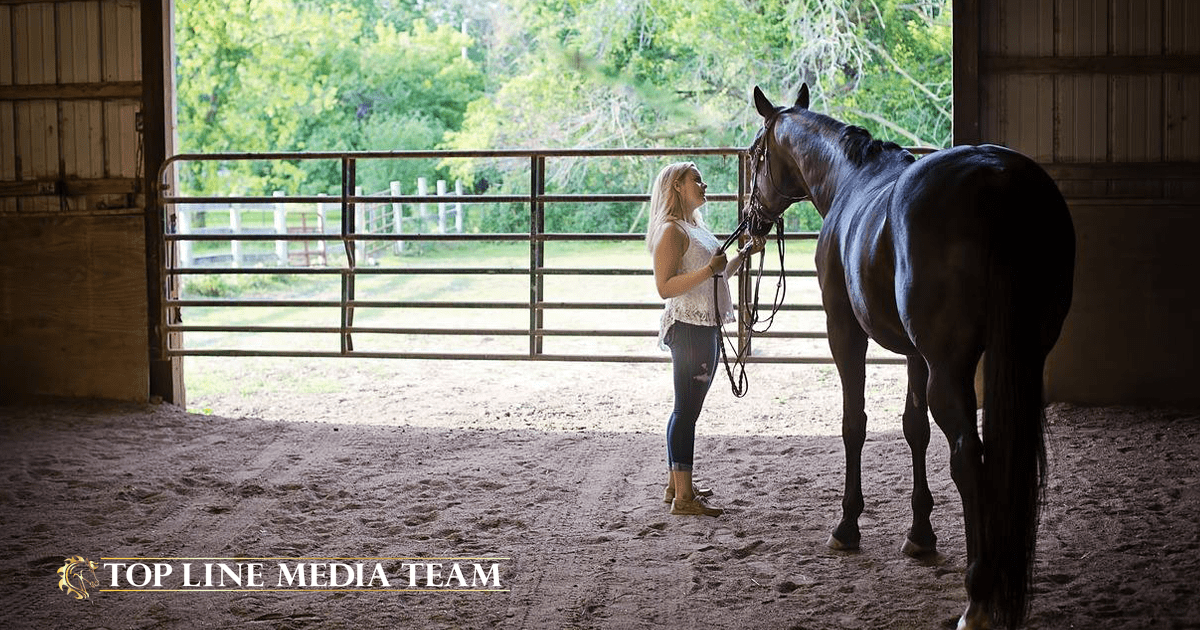By: Caitlin Oestreich, MPA
Disclaimer: the information in this article is meant purely for informational purposes and is not intended to be a substitute for legal or professional advice. This article is the sole opinion of the author. Please consult with your local CPA to determine the best plan for your horse business.
Did you know that the IRS heavily scrutinizes horse business losses? Anyone who gets to spend their day with horses and call it work, can only be doing it for fun, right? That’s why the IRS looks closely at people who have horse businesses to make sure that they are really engaged in business to make a profit. Basically, they do not want to give you tax breaks on your expensive horse hobby.
It’s important to note that, if the IRS determines that your business is actually a hobby, then you are at risk for a three-year audit review. We’re talking thousands of dollars here. Even more important is that if you understate your income by 25% or more, you could be responsible for up to six years’ worth of back taxes instead of the standard three. Yikes! Nobody wants that. I’m not here to scare you though, so let’s start by protecting those assets.
So, how does the IRS determine if you are a business or just a hobby?
By looking at these nine factors:
· Manner in which the taxpayer carries on the activity
· The expertise of the taxpayer or his advisors
· The time and effort expended by the taxpayer in carrying on the activity
· Expectation that assets used in the activity may appreciate in value
· The success of the taxpayer in carrying on other similar or dissimilar activities
· The taxpayer’s history of income or losses with respect to the activity
· The number of occasional profits, if any, which are earned
· The financial status of the taxpayer
· Elements of personal pleasure or recreation
One of the most important factors that they look at is whether or not you make a profit. The best way to help protect yourself is to make a profit in at least two out of seven years, even if it’s a minimal amount. Your accountant might be able to make some legal and ethical adjustments to depreciation or other expenses to help you spread out the costs and be profitable.
No profits? No worries! Here are eight more ways you can tip the scales in your favor:
- Write out a business plan. You need to make sure that this is a high-quality, detailed plan that would encourage the bank to grant you a loan. This is going to help show the IRS that you are serious and are engaging in this business to make money.
- Separate your horse activities. The next thing that could help is separating your business activities. For example, say that you have a stallion, you’re boarding horses and also competing on a regular basis with your performance horses. You can usually separate those three activities in your business books. That way if the IRS determines that one part of your business is a hobby and the other isn’t, you’re not having all of your losses taken back by the IRS and having to pay a bunch of money in back taxes. This is especially important when it comes to a profitable activity because it helps to show that you have the ability to successfully run a business (one of the nine factors above).
- Keep accurate books and records. One of the most overlooked things you can do is keep your business income and expenses separate from your personal expenses. Co-mingling funds could be a strike against you in the hobby determination. One way you can do this is by using a software program like QuickBooks or Freshbooks to automatically track income and expenses. You can easily set up a separate credit card and free checking account with the bank that you already use.
- Show the IRS that you’re making changes to really try and make a profit. This is a way to say what kind of expertise you or your business advisors have. Show them that you have been working with a reputable consultant, going to business conferences, or doing online courses by keeping the receipts and invoices. Show the IRS that yes, you are trying to make money from your business.
- Educate yourself on how other horse businesses are run and model yourself after them. Look at companies that are successful. What are they doing? What kind of marketing? How’s their website? Basically, you want to be modeling your business after other successful businesses. Again, this is something the IRS might look at.
- Document the time and effort that you’re spending. No, I don’t want you to just document that you spent four hours at the barrel race “promoting my futurity horses” because the IRS will say, “Hey, that looks like fun. That’s not time and effort that you are putting it in to create a profitable business.” You should be logging your hours if you’re going to the barn to feed client horses, hours spent working on your property if you board horses, time billing clients, and any office/administrative time. Basically, any time you are actively working in your business should be logged. When keeping a time log, make sure you write a clear description along with the time spent. You can do that easily in Excel or go with pen and paper by buying a time log.
- Demonstrate that you’ve successfully run a business before. I think this one is pretty straightforward. This factor is looking at whether or not you’ve run a profitable business in the past related to your current horse business or not. The proof is in the pudding. Can show on paper that you know how to run a business? If you can, make sure that you have that at your disposal in case of an audit.
- Diversify your horse income. This is a great way to show the IRS that you’re engaged in business for profit. If you’re not making money off your current business activities right now, what are some other things that you can do to make more money without incurring huge expenses? Can you add boarding, teach lessons, try affiliate marketing, or create an online course on grooming a horse? Along with showing the IRS that you are trying to be profitable, diversifying your income is important for your long-term financial health.
I hope these tips can help you protect your business. Get out there and start finding ways to boost your horse income and be a little more business savvy.
Time to take action! What’s one thing you can do to protect your horse business? Need more guidance on what to do with your horse business? Connect with me in the Savvy Cowgirl Tribe’s private Facebook group.
Caitlin Oestreich is a tax accountant, blogger, and founder of Savvy Cowgirl, a lifestyle consulting business that focuses on helping horsewomen start and improve their equine-based businesses. Caitlin is also the creator of the Profitable Horse Business Academy, an online course for equi-preneurs. Learn more about Caitlin at FB.com/groups/
savvycowgirltribe.


 Caitlin Oestreich is a tax accountant, blogger, and founder of Savvy Cowgirl, a lifestyle consulting business that focuses on helping horsewomen start and improve their equine-based businesses. Caitlin is also the creator of the Profitable Horse Business Academy, an online course for equi-preneurs. Learn more about Caitlin at
Caitlin Oestreich is a tax accountant, blogger, and founder of Savvy Cowgirl, a lifestyle consulting business that focuses on helping horsewomen start and improve their equine-based businesses. Caitlin is also the creator of the Profitable Horse Business Academy, an online course for equi-preneurs. Learn more about Caitlin at